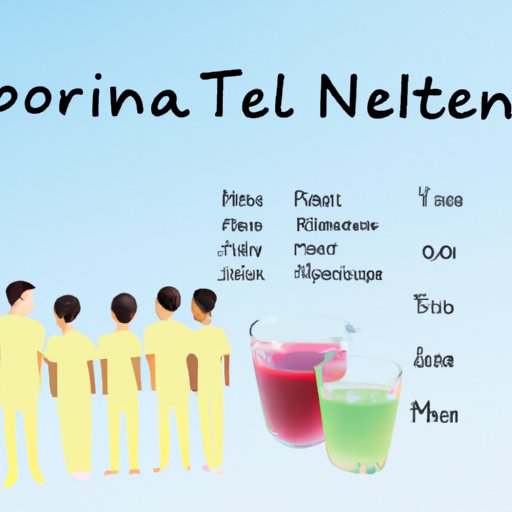Introduction
Total parenteral nutrition (TPN) is a form of medical nutrition support that delivers essential nutrients directly into the bloodstream. It is used when a person cannot adequately receive nutrition orally or through enteral feeding tube. TPN provides complete nutrition and can be life-saving for those who cannot get adequate nutrition through food alone. However, it also carries potential risks and side effects, so it’s important to understand what’s involved before beginning TPN.

Definition of Total Parenteral Nutrition
Total parenteral nutrition (TPN) is a form of medical nutrition support that bypasses the digestive tract to deliver nutrients directly into the bloodstream. It is delivered via an intravenous (IV) line, usually in a hospital setting, and is typically made up of a combination of proteins, carbohydrates, fats, vitamins, minerals, electrolytes, and other nutrients. TPN can provide all of the necessary nutrients a person needs, including calories, water, and protein.
Overview of the Benefits and Risks of Total Parenteral Nutrition
The primary benefit of TPN is that it can provide complete nutrition for those who are unable to get adequate nutrition from food alone. It can be life-saving for those who are malnourished or suffering from a condition that prevents them from digesting and absorbing food properly. TPN can also be beneficial for people who have undergone major surgery or are at risk of developing malnutrition due to a medical condition.
However, there are also risks associated with TPN. These include the potential for infection, fluid overload, electrolyte imbalances, liver damage, and other complications. TPN should only be used when the potential benefits outweigh the risks.

Preparing for Total Parenteral Nutrition
Before beginning TPN, it’s important to work closely with your health care team to ensure you understand the risks and benefits of the treatment and to ensure that you are taking all necessary steps to prepare for it. This includes making dietary changes to reduce the risk of complications and ensuring that you have all of the necessary supplies and equipment.
Working with Your Health Care Team
Before beginning TPN, it’s important to work closely with your health care team to discuss any potential risks and benefits and to ensure that you understand the treatment process. Your health care team will also help you to monitor your progress and make any necessary adjustments to your TPN regimen.
Making Dietary Changes
Your health care team may recommend making certain dietary changes prior to beginning TPN. This may include reducing your intake of certain foods or drinks, such as caffeine, and increasing your intake of certain nutrients, such as fiber. It’s important to follow your health care team’s instructions and to make any necessary dietary changes prior to beginning TPN.
Common Side Effects of Total Parenteral Nutrition
As with any medical treatment, there are potential side effects associated with TPN. Common side effects include gastrointestinal discomfort, weight gain or loss, and fluid retention. It’s important to talk to your health care team about any potential side effects and to report any symptoms that you may experience.
Monitoring Total Parenteral Nutrition
It’s important to monitor your TPN regimen to ensure that it is providing adequate nutrition and to check for any potential side effects. Your health care team will likely recommend keeping track of your intake and output, as well as monitoring your blood tests. Your health care team may also recommend periodic imaging tests to monitor the status of your IV line.

Alternatives to Total Parenteral Nutrition
There are several alternatives to TPN that can provide adequate nutrition without the risks associated with TPN. These include enteral nutrition, which delivers nutrients directly to the small intestine through a feeding tube, as well as making dietary changes and increasing physical activity. Talk to your health care team to determine if any of these alternatives might be right for you.
Conclusion
Total parenteral nutrition (TPN) is a form of medical nutrition support that can provide complete nutrition for those who cannot get adequate nutrition through food alone. While TPN can be beneficial, it also carries potential risks, so it’s important to understand what’s involved before beginning TPN. Working with your health care team and making dietary changes can help to reduce the risks associated with TPN. There are also alternatives to TPN, such as enteral nutrition, diet, and exercise, that can provide adequate nutrition without the risks associated with TPN.
(Note: Is this article not meeting your expectations? Do you have knowledge or insights to share? Unlock new opportunities and expand your reach by joining our authors team. Click Registration to join us and share your expertise with our readers.)
